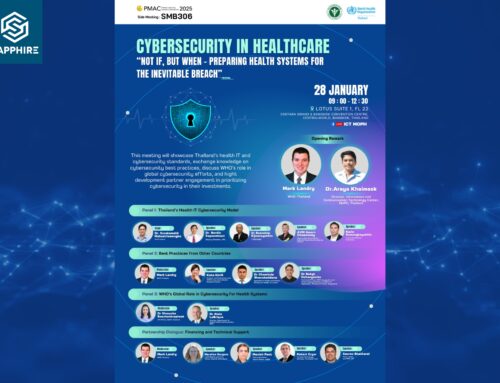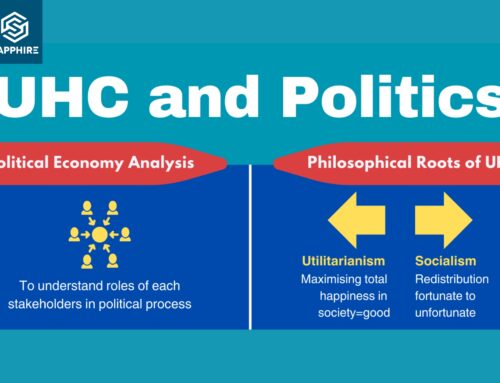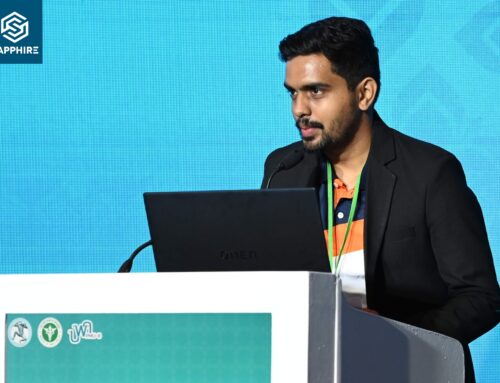- How do decision-makers in Thailand decide whether a new or improved vaccine should be added to the Expanded Program on Immunization (EPI)?
- What is the vaccine prioritization and selection processes in Thailand?
- How can the product preferences of low and middle-income countries (LMICS) be better communicated to vaccine manufacturers?
These are the questions raised in a three-day workshop organized by HITAP and The World Health Organization (WHO) held on 15th – 17th May. The workshop was centered on the usability and applicability of Total Systems Effectiveness (TSE) in Thailand, a multi-criteria decision-making tool for vaccine product selection.
The overarching mission of TSE is to improve cohesion between country uptake and product development. TSE aims to strengthen country decision-making and help decide or prioritize between products from a systems perspective, considering coverage, cost, equity, safety and other considerations.
For vaccine research and development (R&D), TSE aims to identify country preferences and priorities to assess the value proposition of a vaccine. TSE currently takes the form of an excel model and quantifies inputs to inform decision-making at the country level and for research and development.

Dr. Raymond Hutubessy from WHO discussing the TSE concept and the purpose of the pilot at the Stakeholder Meeting, 17th May at the HITAP office
WHO and Thailand are currently piloting TSE in Thailand, as well as in Indonesia, Zambia and Rwanda. The first two days of the workshop were focused on training HITAP staff and local experts to use the excel-based TSE model and put forward a plan of improvement. On the third day, HITAP organized a stakeholder meeting to introduce stakeholders involved in vaccine decision-making in Thailand to the TSE concept and receive their initial feedback.
Dr. Raymond Hutubessy and Siobhan Botwright from WHO shared the overview of TSE, the purpose of the pilot project and Jos Luttjeboer from Asc Academics discussed TSE model. Representatives from Priceless, South Africa, National University of Singapore and HITAP International unit joined the technical training. Jos used multi-criteria decision analysis (MCDA) excel-based model exercise which includes the purpose and stage of the HTA process, made explanations of the trade-offs between different criteria e.g. economic considerations, safety and coverage, determine the most important criteria for decision-making and compare vaccine products against selection criteria.

Professor. Dr. Kriang Tungsanga, Chair of the Subcommittee of National List of Essential Medicines (NLEM), presenting on the NLEM selection process, during the TSE Stakeholder Meeting, 17th May at the HITAP office.
The Chair of the Subcommittee of National List of Essential Medicines (NLEM), representatives from subcommittee on the Benefits Package, Topic Selection for the Health Economic Working Group, Mahidol University and delegates from different Govt entity joined the stakeholder meeting. In the stakeholder meeting, Raymond presented the overview of TSE, Prof. Dr. Kriang presented about processes in Thailand applicability and representative from vaccine prioritization in Advisory Committee on Immunization Practices (ACIP) presented about vaccine prioritization and selection processes and also provided insightful country-specific feedback.
HTA has traditionally only been applied to products already available, but stakeholders discussed the feasibility of using HTA to inform R&D. Rather than the country-use case, stakeholders maintained that TSE is more useful for the R&D case in Thailand including the demand forecast, nationally and internationally. Stakeholders also mentioned that there is potential for TSE to encourage public-private collaboration which can help reduce the price of new vaccines and ensure a smooth supply. TSE should not be tied to the commitment from the government only, it can aid private pharmaceutical companies launching drugs into the market too.
The HITAP team will organize a dissemination and stakeholder meeting on 1st week of August where the team will present findings from the rotavirus test case and discuss feasibility and usefulness of using TSE for R&D. HITAP will invite experts involved in vaccine R&D, nationally, regionally and globally.



